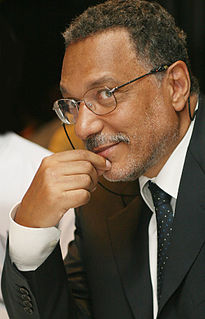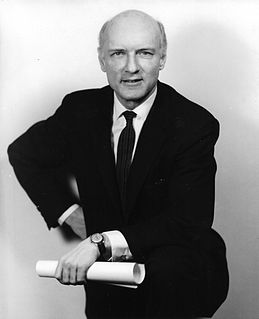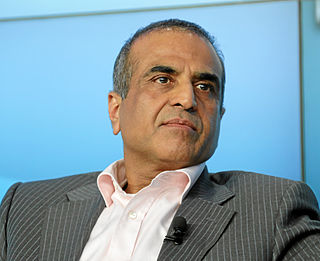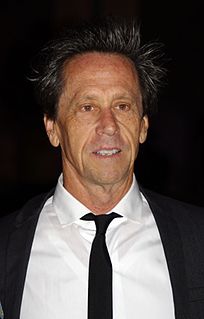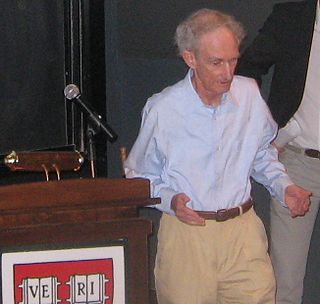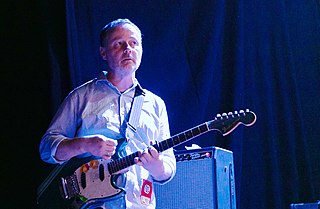Top 1200 Complex Systems Quotes & Sayings - Page 6
Explore popular Complex Systems quotes.
Last updated on April 21, 2025.
The poverty we see in America is now too widespread, and too complex, for easy fixes. But I do think we can reimagine many of our institutions and can create new ones in ways that would be effective. We could, for example, create social insurance systems, similar to social security, such as that we went through in 2008-9. We could create a financial transaction tax, oil profit taxes and a fairer estate tax system, and we could plow much of the revenue raised from these into job training programs, into better education infrastructure, into an expanded Earned Income Tax Credit.
Holland's and Kauffman's work, together with Dawkins' simulations of evolution and Varela's models of autopoietic systems, provide essential inspiration for the new discipline of artificial life, This approach, initiated by Chris Langton (1989, 1992), tries to develop technological systems (computer programs and autonomous robots) that exhibit lifelike properties, such as reproduction, sexuality, swarming, and co-evolution.
I feel that when a white child goes to school only with white children, unconsciously that child grows up in many instances devoid of a world perspective. There is an unconscious provincialism, and it can develop into an unconscious superiority complex just as a Negro develops an unconscious inferiority complex.
Molecular biology has shown that even the simplest of all living systems on the earth today, bacterial cells, are exceedingly complex objects. Although the tiniest bacterial cells are incredibly small, weighing less than 10-12 gms, each is in effect a veritable micro-miniaturized factory containing thousands of exquisitely designed pieces of intricate molecular machinery, made up altogether of one hundred thousand million atoms, far more complicated than any machine built by man and absolutely without parallel in the nonliving world.
Real history is far more complex and interesting than the simplistic summaries presented in Wikipedia articles. Knowing this allows you to question received wisdom, to challenge 'facts' 'everybody' knows to be true, and to imagine worlds and characters worthy of our rich historical heritage and our complex selves.
The most basic act of awareness or knowing that we can demonstrate in science. I postulate that that is the very basis of why we're conscious at all, that it is this relationship at the quantum level as matter evolves into more complex form, including plants and animals and living substance and ourselves, that this area of consciousness as an awareness becomes more and more complex.
If you create networks that allow people in their own local systems to have power and agency and sovereignty in their own systems. The idea that people could just know what's happening with their data. You could work with the platform, in communication with it, more than "I'm just like experiencing as a blind person in a black box".
There is a difference between our wisdom and nature's simplicity. That reflects the burden of a complex intelligence. A complex intelligence like ours is impotent compared to the intelligence of a monarch butterfly migrating from Canada to Mexico, or the intelligence of hummingbirds that have co-evolved with the flowers all along their migration route. That seems so simple; it just happens, it just unfolds.
We find ourselves ethically destitute just when, for the first time, we are faced with ultimacy, the irreversible closing down of the earth's functioning in its major life systems. Our ethical traditions know how to deal with suicide, homicide and even genocide, but these traditions collapse entirely when confronted with biocide, the killing of the life systems of the earth, and geocide, the devastation of the earth itself.
The more we learn of the true nature of non-human animals, especially those with complex brains and corresponding complex social behavior, the more ethical concerns are raised regarding their use in the service of man - whether this be in entertainment, as "pets," for food, in research laboratories, or any of the other uses to which we subject them.
There is no need for an end to fish, or to fishing for that matter. But there is an urgent need for governments to free themselves from the fishing-industrial complex and its Ponzi scheme, to stop subsidizing the fishing-industrial complex and awarding it fishing rights, when it should in fact pay for the privilege to fish.
Welfarism and excessive spending and deficits and socialism divide us, because everybody has to go to Washington. Those who have the biggest clout, whose who are the best lobbyists, those who go and they grab. And whether it's the medical industrial complex, or the banking industry, or the military industrial complex, that's who ends up controlling our government...
Resilience, timing, adaptation - these are the three pillars upon which the emergent properties of interacting systems rest. When the systems are the economy and the environment, understanding of the relationships among these concepts is crucial. This volume does a better job of explaining how to manage both money and nature to ensure humanity's long-term future than any other work I know of. Read and reflect.
Morality is neither rational nor absolute nor natural. World has known many moral systems, each of which advances claims universality; all moral systems are therefore particular, serving a specific purpose for their propagators or creators, and enforcing a certain regime that disciplines human beings for social life by narrowing our perspectives and limiting our horizons.
A preventive war, to my mind, is an impossibility today. How could you have one if one of its features would be several cities lying in ruins, several cities where many, many thousands of people would be dead and injured and mangled, the transportation systems destroyed, sanitation implements and systems all gone? That isn't preventive war; that is war.
Complex tasks are often better handled in the back of our mind, and that's often true of creative tasks - when you have something complex to deal with in writing or research or responding to an email. I'll start working, put it aside, and sometimes I'll wake up the next morning with a solution, or I'll find one when I exercise.
Virtue is as little to be acquired by learning as genius; nay, the idea is barren, and is only to be employed as an instrument, in the same way as genius in respect to art. It would be as foolish to expect that our moral and ethical systems would turn out virtuous, noble, and holy beings, as that our aesthetic systems would produce poets, painters, and musicians.
It was obvious-to me at any rate-that the answer was to why an enzyme is able to speed up a chemical reaction by as much as 10 million times. It had to do this by lowering the energy of activation-the energy of forming the activated complex. It could do this by forming strong bonds with the activated complex, but only weak bonds with the reactants or products.
For the blue-collar worker, the driving force behind change was factory automation using programmable machine tools. For the office worker, it's office automation using computer technology: enterprise-resource-planning systems, groupware, intranets, extranets, expert systems, the Web, and e-commerce.
The PFOA, PFOS is is a real concern and people need to be concerned about it and the water systems need to be concerned about it. But when you only focus on that, it could take resources away from other issues or problems that the water systems have diverted to just this. And this may not be a huge problem in every community.
We're interested in complex characters and he's a complex character, [J. Edgar] Hoover. I like these types of dramas. I've made a few of them and I'm also interested in power structures so it just has elements that fascinate me, and the more you learn about Hoover, the more polarizing you realize he is.
The more complex our economy, the more we should rely on the miraculous, self-adapting processes of men acting freely. No mind of man nor any combination of minds can even envision, let alone intelligently control, the countless human energy exchanges in a simple society, to say nothing of a complex one.
I think the problem is, if we foreclose any public justice, then we cut off the virtuous cycle that's represented by law, where there are public decisions which then deter misconduct in the future. We need to have both. We need to have private dispute sy-, systems, and we need to have public dispute systems.
All of us in a bipartisan manner went out of our way to explain to the voters how our election systems are secure, the fact that voting systems are not connected to the Internet - not the machines that we use to mark ballots, not the machines that we use to count ballots, the fact that our election counting procedures are very transparent.
It is science that brings us an understanding of the true complexity of natural systems. The insights from the science of ecology are teaching us how to work with the checks and balances of nature, and encouraging a new, rational, limited-input, environmentally sound means of vineyard management that offers a third way between the ideologically driven approach of Biodynamics and conventional chemical-based agricultural systems.
It makes no sense to seek a single best way to represent knowledge-because each particular form of expression also brings its particular limitations. For example, logic-based systems are very precise, but they make it hard to do reasoning with analogies. Similarly, statistical systems are useful for making predictions, but do not serve well to represent the reasons why those predictions are sometimes correct.
The challenges, the changes we're talking about often seem to them like unbelievable opportunities to deliver a product quicker, better. If you can improve the quality, lower the cost, and improve the turns - and you can do that because your information systems, your delivery systems, are better because of technology - well, you see that as a wonderful opportunity to gain market share.
Melodies can be good depending on the context. You can have a simple melody, and if the harmony behind it is interesting, it can make a very simple melody really different. You can also have a complex melody. The more complex it is, the harder it is to sing, and then sometimes it can sound contrived. You could write a melody that would be fine on a saxophone but if you give it to a singer, it can sound raunchy.
My pictures are complex and so am I. When I am almost symbolistic in writing, there is a more limiting difference’s of accepting, while I can be even more complex in the photographs and people can usually accept them within the framework of their own limitations or lack of limitations – there is no dictionary meaning… they can look up for the photographic image and allow it to confuse them.
In such systems, there is unquestioning respect for authority. Faith trumps evidence. But if indeed this is broadly the explanation for how co-operative behaviour has evolved and been maintained in human societies, it could be very bad news. Because although such authoritarian systems seem to be good at preserving social coherence and an orderly society, they are, by the same token, not good at adapting to change.
The tragic reality is that very few sustainable systems are designed or applied by those who hold power, and the reason for this is obvious and simple: to let people arrange their own food, energy and shelter is to lose economic and political control over them. We should cease to look to power structures, hierarchical systems, or governments to help us, and devise ways to help ourselves.
Today the network of relationships linking the human race to itself and to the rest of the biosphere is so complex that all aspects affect all others to an extraordinary degree. Someone should be studying the whole system, however crudely that has to be done, because no gluing together of partial studies of a complex nonlinear system can give a good idea of the behavior of the whole.
We are unconscious of most of our body's processes, thank goodness, because we'd screw it up if we weren't. The human body is so complex, with so many parts...a system which is far more complex than we can fully imagine. The idea that we are consciously care-taking such a large and mysterious system is ludicrous.
I say we have not even had the decency to maintain the assets that our parents and grandparents built for us - our roads, our bridges, our wastewater systems, our sewer systems; by the way, those weren't Bolsheviks, those weren't socialists that built those things for us - much less build the infrastructure we need for the 21st century.
My thing is, if you're going to put stuff in your body, it's going to be beneficial. Clean carbs, complex carbs, good proteins, a balanced diet. It's difficult to do it on a consistent basis, but it's pretty straightforward: fish, chicken, lean red meat, vegetables, fruits, complex carbs. The hardest part is putting on the work.
It became obvious that we had completely failed to impose rules on unbridled speculative capitalism. That destroyed financial systems, hollowed out state systems and deeply shook German social stability. Can you recall the debate about "locust" hedge funds - even if it's a terrible term. The speculator capitalists roamed the land, stealing the substance from companies and throwing away the shells. And we were powerless.
In studying language we can discover many basic properties of this cognitive structure, its organization, and also the genetic predispositions that provide the foundation for its development. So in this respect, linguistics, first of all, tries to characterize a major feature of human cognitive organization. And second, I think it may provide a suggestive model for the study of other cognitive systems. And the collection of these systems is one aspect of human nature.
Of all the systems of the body - neurological, cognitive, special, sensory - the cardiological system is the most sensitive and easily disturbed. The role of society must be to shelter these systems from infection and decay, or else the future of the human race is at stake. Like a summer fruit that is protected from insect invasion, bruising, and rot by the whole mechanism of modern farming; so must we protect the heart.
The good news is that there is strong movement in this direction of shifting from domination systems to partnership systems. Over the past several hundred years, one progressive movement after another has challenged traditions of domination - from the 18th century "rights of man" movement challenging the "divinely ordained right" of kings to rule their "subjects" to today's environmental movement challenging the once hallowed "conquest of nature."
All art that is not mere storytelling, or mere portraiture, is symbolic, and has the purpose of those symbolic talismans which medieval magicians made with complex colours and forms, and bade their patients ponder over daily, and guard with holy secrecy; for it entangles, in complex colours and forms, a part of the Divine Essence.













